There is always much discourse that surrounds the pillars of Lenten practice: prayer, fasting, and almsgiving. Especially in regards to fasting, sometimes wrong information is given or right information is given in disparaging ways. This makes it hard to know what to do and when to do it, let alone to know what’s fitting for a person’s situation in life. Let’s take a look at what the Church asks of us during Lent, complete with where to find this information yourselves.
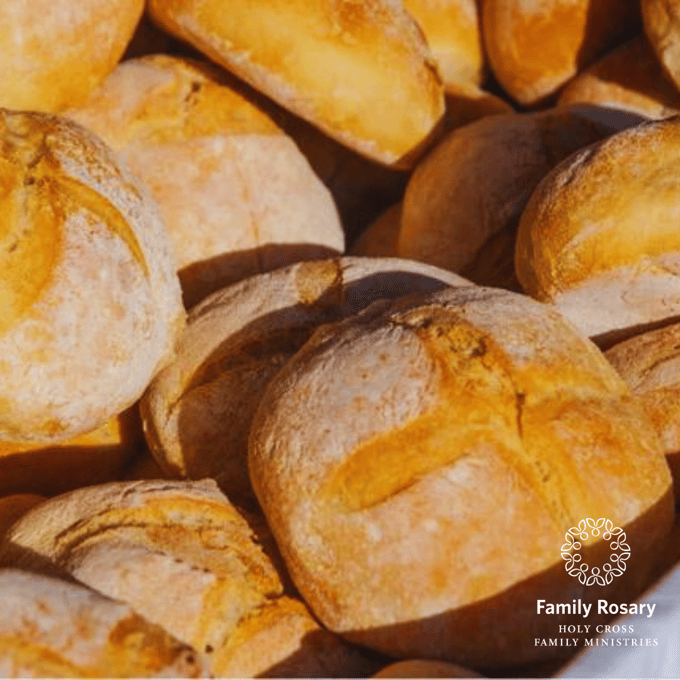
Obligations That Govern Us
In the laws of our Church we find her expectations for us compiled in the Code of Canon Law. As two canonists I listen to say, “To the Code!”
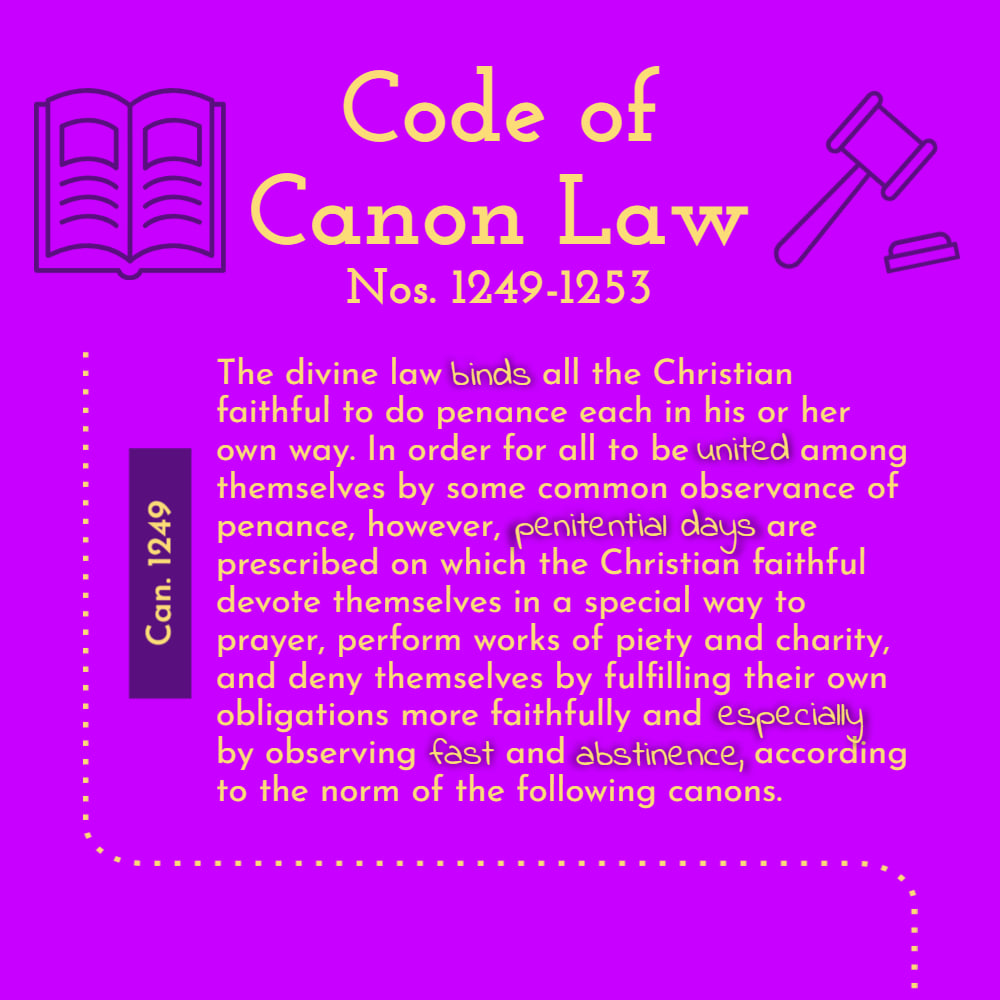
We are free to respond to the call to do penance in whatever way we see fit; repentance is the beginning of our response to God (see Mark 1:15). There are common times that the whole Church responds in penance together.
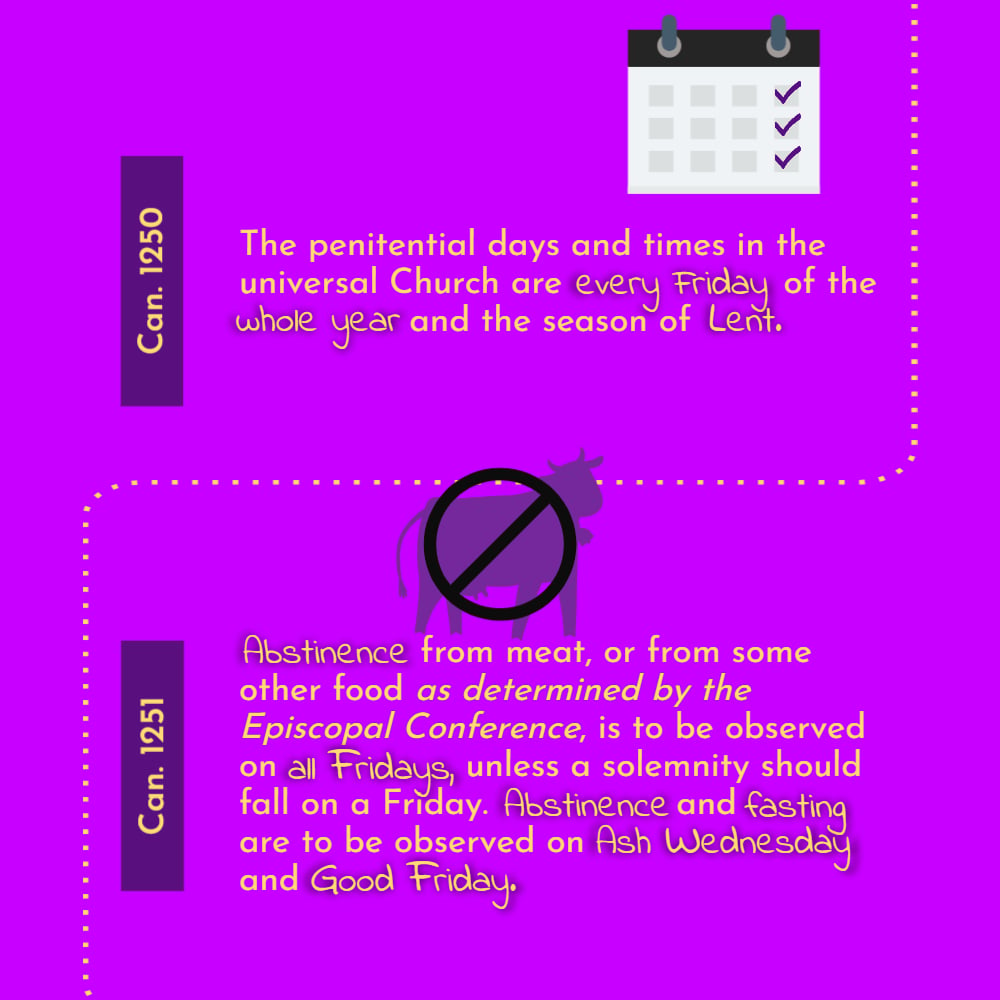
What and When
Fasting and abstinence are not all that penance means; this addresses only abstinence and fasting (often we see the works of mercy as more ways to do penance). Specific conferences of bishops can determine the abstinence requirement for their people. In the US, this is the USCCB (United States Conference of Catholic Bishops).
While the requirement for fasting and abstinence can be excused, I paraphrase the US bishops here (nos. 12 & 13), "No Catholic will excuse themselves unless it’s really necessary." This requirement does not apply to those already excused (by virtue of age or other stipulated reason); there is no need for a further serious excuse. In general, in the US, Lenten Fridays are days of abstinence from meat, as article 13 notes.
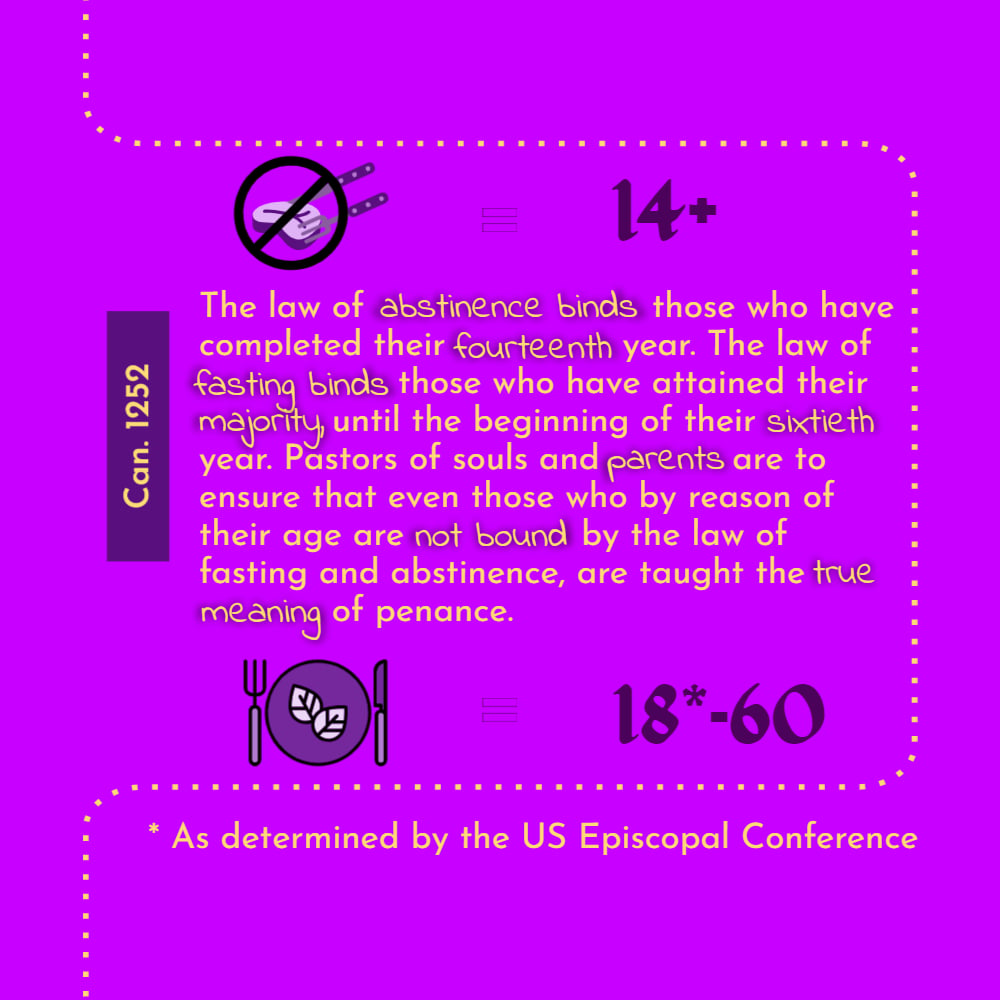
Who is Required to Abstain and Fast?
Those outside of these ages can, while not bound (/obligated) to fast and/or abstain, freely choose to participate in it and/or engage in meaningful actions of penance that serve its purpose: conversion of heart and a sign of our love for God.
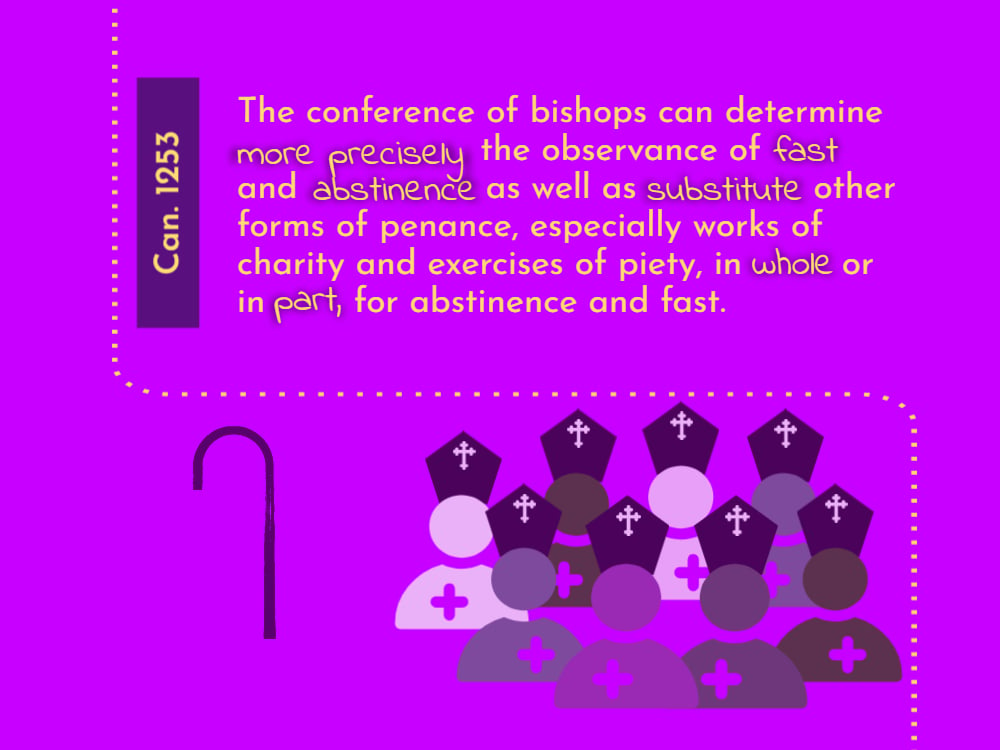
Why Can It Be Different in Different Places?
This canon means that each Conference has authority to oblige that which is spiritually best for their flocks regarding penance. We’ll see this in action a little further down.
Who Is Exempt?
Aside from the ages mentioned above, there is nothing specifically in the Code that stipulates who may be exempt from fasting. This does not mean it doesn’t lawfully exist! To the contrary, the US bishops promulgated a pamphlet that indicates those who are physically or mentally ill (including those suffering with chronic conditions such as diabetes), and pregnant and nursing women are specifically excluded from the requirement to fast.
For my fellow Canadians, the Canadian Conference’s amendment stipulates:
Fridays in Lent are not observed differently than other Fridays during the year in Canada.
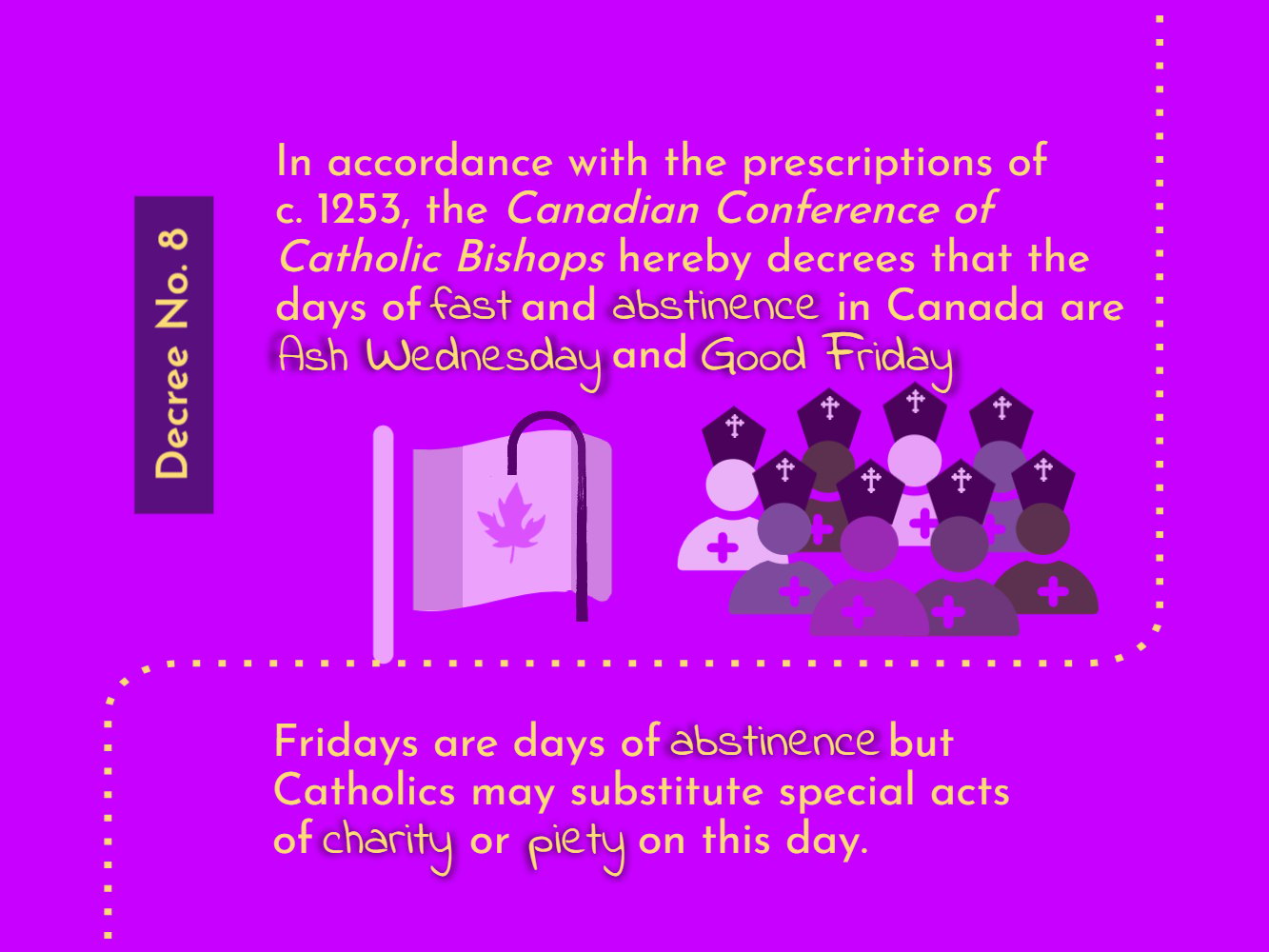
Our Church Wants Us to Succeed
As the Chancellor of our diocese (and friend), Fr. Darryl Millette, told me, it is the mind of the Church to hold to the principle of reasonableness: ad impossibilia nemo tenetur—to the impossible, no one is required.
If in doubt, you can always consult your pastor, who is granted the authority to dispense an individual (a.k.a. you, or your dependent) from requirements or to substitute other penitential acts that are more fitting for you. They are there to help us succeed—their goal for us is the same as ours—conversion of our hearts to God and redemption from all our sins.
Further reading on relevant Canon Law by canonists:
2 Meat Fridays? Maybe by The Pillar staff
Are Catholics Supposed to Abstain from Meat Every Friday? By Cathy Caridi, J.C.L.
Thoughts on the obligation to attend Mass during times of pestilence (indirectly using the principle of reasonableness) by Dr. Peter Edwards
Copyright 2024 Jane Korvemaker
Images: (top) Canva; all others copyright 2024 Jane Korvemaker, all rights reserved.